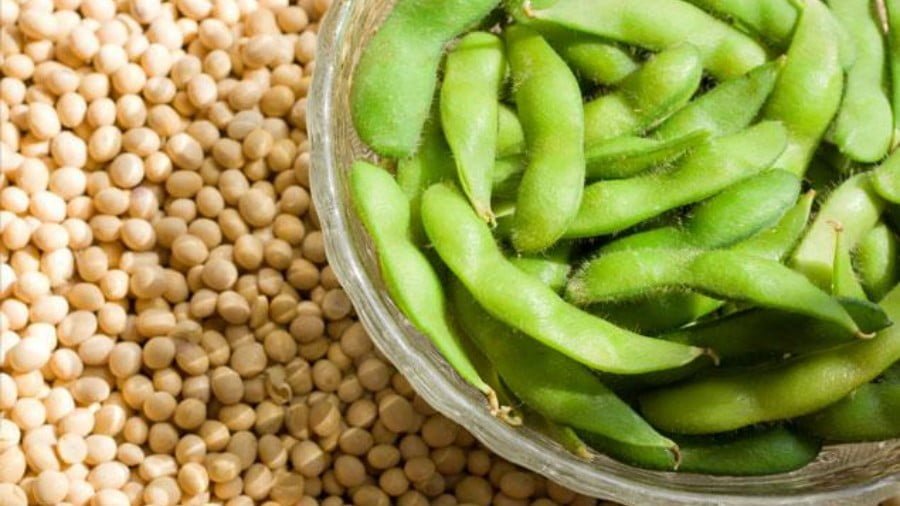Confused About Soy? Soy Dangers Summarized
Soy has been a subject of debate for many years in the health world. For vegans and vegetarians, it is an alternative protein to meat that is believed to be of high quality. However, it’s fair to say this belief is not widespread across the medical and health industry. While many are quick to turn a blind eye to concerns, with so much noise being made about soy’s downsides, one has to choose to pay attention if they care about their health, don’t they? It’s an important subject to explore in that if one chooses a vegan or vegetarian diet, it does not mean they are going to be eating healthy. Many processed vegan or vegetarian foods have the same adverse effects as eating animal products.
One misconception that slips its way past most of us is the belief that soy was consumed for many years by Asian cultures and that they are among the most healthy, so if we consume soy now, we should all be fine. While this is true, there is a glaring difference between how ancient Asia prepared soy and how we do today. That key difference: fermenting the soy.
Un-fermented soybeans, what we mainly eat today, contain large quantities of natural toxins or “anti-nutrients”. Some of the most important to avoid are potent enzyme inhibitors that block the action of trypsin and other enzymes needed for protein digestion. These inhibitors are tightly folded proteins that do not deactivate during the cooking process. Without being deactivated, they have the ability to produce serious gastric distress, reduce protein digestion and chronic deficiencies in amino acid uptake. Several tests were done on animals that showed diets high in trypsin inhibitors cause enlargement and pathological conditions of the pancreas, including cancer.
The un-fermented consumption of soy creates an environment in the body that is unable to properly digest and break the protein in soy. This means the soy can become toxic within the body and create a series of adverse challenges. The Asian cultures consuming soy in the past knew that soy needed to first be fermented and so they did not consume it unless it was.
Here is a list of 10 dangers that come with consuming un-fermented soy. I think it’s important that we at least limit our intake of soy until we can truly determine for ourselves whether or not it’s something we want to consume. While this is only my opinion, my research and personal experience in being vegan/vegetarian has led me to feel that not only is soy not ideal for consumption when un-fermented, but my body has felt much better without having it in my diet. I can’t tell you what choices to make, but being more open minded to both sides of the soy argument might lead you to some different choices.
1. High levels of phytic acid in soy reduce assimilation of calcium, magnesium, copper, iron and zinc. Phytic acid in soy is not neutralized by ordinary preparation methods such as soaking, sprouting and long, slow cooking. High phytate diets have caused growth problems in children.
2. Trypsin inhibitors in soy interfere with protein digestion and may cause pancreatic disorders. In test animals soy containing trypsin inhibitors caused stunted growth.
3. Soy phytoestrogens disrupt endocrine function and have the potential to cause infertility and to promote breast cancer in adult women.
4. Soy phytoestrogens are potent antithyroid agents that cause hypothyroidism and may cause thyroid cancer.
5. In infants, consumption of soy formula has been linked to autoimmune thyroid disease.
6. Vitamin B12 analogs in soy are not absorbed and actually increase the body’s requirement for B12
Soy foods increase the body’s requirement for vitamin D.
7. Fragile proteins are denatured during high temperature processing to make soy protein isolate and textured vegetable protein.
8. Processing of soy protein results in the formation of toxic lysinoalanine and highly carcinogenic nitrosamines.
9. Free glutamic acid or MSG, a potent neurotoxin, is formed during soy food processing and additional amounts are added to many soy foods.
10. Soy foods contain high levels of aluminum which is toxic to the nervous system and the kidneys.
Sources
- Rackis, Joseph J. et al., “The USDA trypsin inhibitor study. I. Background, objectives and procedural details”, Qualification of Plant Foods in Human Nutrition, vol. 35, 1985.
- Studies Showing the Toxicity of Soy in the US Food & Drug Administration’s Poisonous Plant Database (7.5M PDF)
- Studies Showing Adverse Effects of Dietary Soy, 1939-2008
- Studies Showing Adverse Effects of Isoflavones, 1950-2010
- http://www.westonaprice.org/soy-alert/not-so-soy-healthy-for-the-heart







